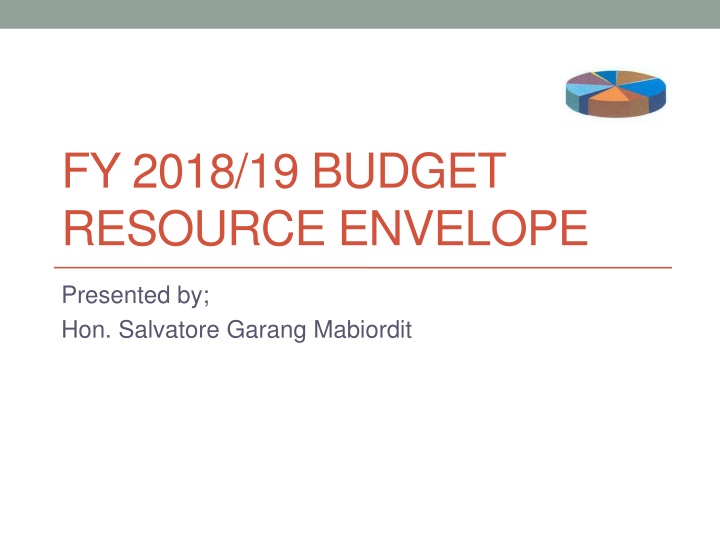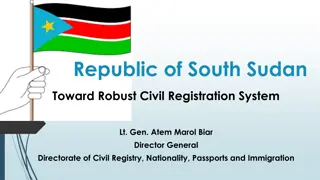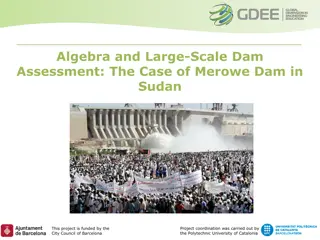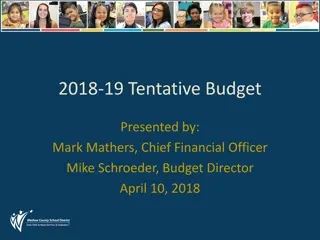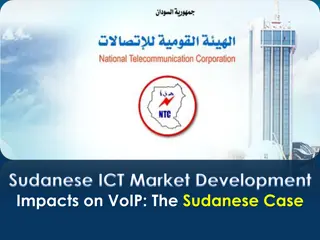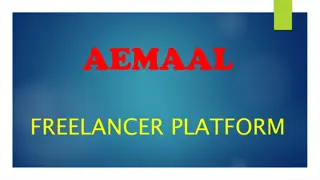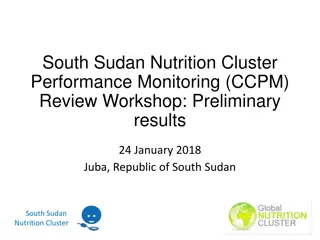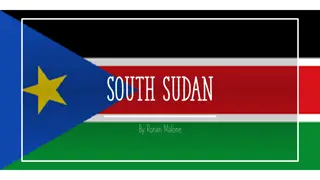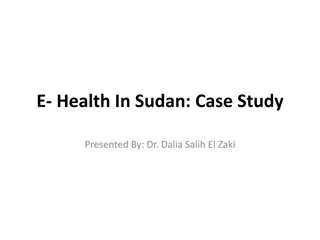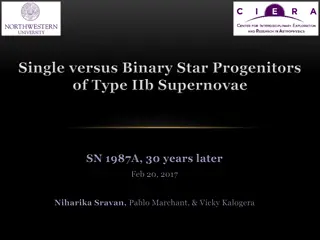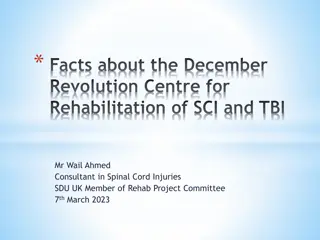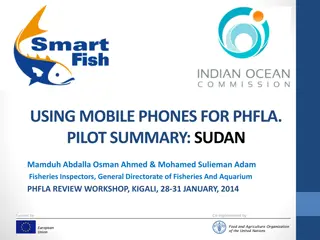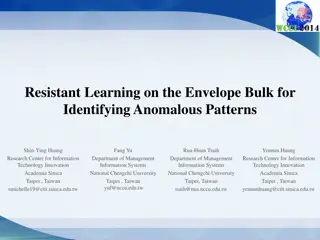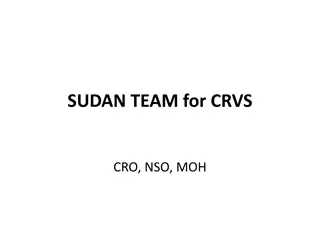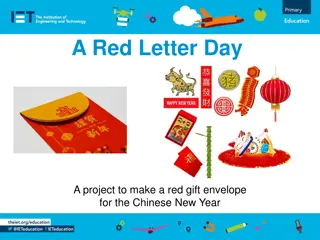South Sudan FY 2018/19 Budget Resource Envelope Presentation
Hon. Salvatore Garang Mabiordit presents the FY 2018/19 Budget Resource Envelope to address discrepancies in oil data, highlighting an increased envelope of 79 billion SSP. Key areas include defaults, TFA payments, contingency fund, salaries arrears fund, non-oil revenue projections, and VAT collection. The presentation outlines strategies to tackle challenges and manage resources effectively for the fiscal year.
Download Presentation

Please find below an Image/Link to download the presentation.
The content on the website is provided AS IS for your information and personal use only. It may not be sold, licensed, or shared on other websites without obtaining consent from the author.If you encounter any issues during the download, it is possible that the publisher has removed the file from their server.
You are allowed to download the files provided on this website for personal or commercial use, subject to the condition that they are used lawfully. All files are the property of their respective owners.
The content on the website is provided AS IS for your information and personal use only. It may not be sold, licensed, or shared on other websites without obtaining consent from the author.
E N D
Presentation Transcript
FY 2018/19 BUDGET RESOURCE ENVELOPE Presented by; Hon. Salvatore Garang Mabiordit
Introduction H.E the President, honorable Ministers, I am here to present to you the FY: 2018/19 Resource Envelope. From the onset I am not going to walk you through the previous presentation that I made three weeks ago. Rather I am going to focus on Your Excellency s query on the discrepancies of oil data between Ministry of Finance and Ministry of Petroleum and payments to Khartoum. In that respect, the main areas of concerns and explanations raised by some of the council members are as follows: As a result of the corrections made, in collaboration with the Ministry of Petroleum, the resource envelope increased from 47billion SSP to79billion SSP of which government own fund is 78bn and external fund is 1.1bn
Defaults and TFA The remaining balance of defaults stands at 19 million USD (equivalent of 350,000 barrels of crude oil) by the end of June 2018; this will be cleared off by the end of August 2018. The outstanding balance of TFA to Sudan stands at 1.3bn USD as of February 2018, we will continue paying the remaining balance through 28,000 barrels per day
Contingency Fund (2bn SSP) This amount is calculated to cater for government response to urgent and unforeseen circumstances that may arise during the course of the year.
Salaries Arrears Fund (17bn SSP) Salaries arrears expected to be carried forward to the FY: 2018/19 is 17bn calculated and separated from spending agencies ceilings to avoid misallocations; this amount is for both the Central Government and the States
Non oil revenue Will increase by 50% and 30% given the current high inflation rate of 73% in nominal terms and associated depreciation of South Sudan pound against USD and major currencies. This in turn raises the value of USD denominated imports and consequently the taxes.
VAT No where taxes like VAT is collected and administered by regulatory ministries or agencies other than the Ministry of Finance, particularly the Directorate of Taxation or Domestic Tax Division of the Revenue Authority which are mandated by law. However, other ministries or government agencies are mandated to levy charges, fees and fines or penalties on cost recovery basis and remit to single treasury account (block account)
Fiscal Federalism We recognize the existence of conflicts between Central Government and Sub-national level Governments in revenue and tax sharing (taxes like Personal Income Tax and Business Profit Tax) and taxes on international trade or cross-border trade that are the exclusive competency of the Central Government. With the National Revenue Authority (NRA) established, these conflicts will be mitigated through new structures within the Authority and regulations to operationalize Article 177 of the Transitional Constitution of the Republic of South Sudan. Your Excellency, with these corrections and explanations I kindly ask the Cabinet to scrutinize and pass the indicative ceilings/ resource envelope for timely preparation of the budget as required by law.
Conclusions The fiscal situations are difficult. We need to seriously consider reducing or eliminating the fuel price subsidy managed by Nilepet this is the most practical option for increasing resources for Government spending in 2018-19. If we eliminate the fuel price subsidy, we will be in a position to pay salaries on time, something we have struggled to do this year, I suggested reducing the subsidy to only 60,000 barrels per quarter We shall work closely with National Revenue Authority to improve on collections of taxes and fees and eliminate conflicting authorities of sub-nation level of government on revenue collections.
